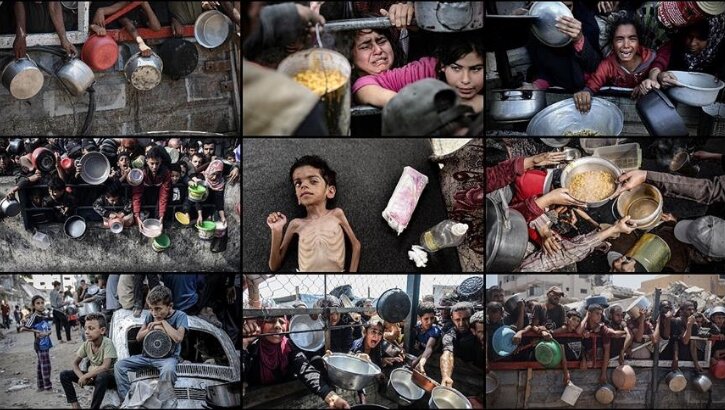Fragments of hope, crumbs of bread

TEHRAN- Abdullah Jendeia, a nineteen-year-old with nothing to fill his stomach but a restless dream, left his mother’s battered home in al-Sabra just as the afternoon heat settled in. The war had already stripped their lives down to the bone, leaving only a handful of lentils in the pot and hope rationed as strictly as flour.
“Just eat what we have left,” his sister Nadreen pleaded. But hunger is its own tyrant. For Abdullah and his brothers, need outweighed fear; they began the long trek north, passing through ruins and military checkpoints, heading toward the faint promise of an aid truck rumored to arrive once a week.
At the Netzarim Corridor—a militarized zone slicing Gaza in half—their gamble unraveled. As they waited with dozens of others, Israeli soldiers opened fire. By the time midnight fell, Nadreen’s phone rang with catastrophic news: Abdullah was gone, his brothers wounded.
“He was a joy to be around,” she whispered later, holding onto memories of sunlit afternoons on Gaza’s beaches, long before hunger replaced laughter and football. He once dreamed of running his own shop after the war, but even dreams have become a luxury.
Abdullah’s story is no singular tragedy. It echoes through the corridors of Patients’ Friends Hospital in northern Gaza, where Dr. Rana Soboh threads her way between rows of skeletal children, their bodies silent testimonies to a famine that now offers no mercy.
The usual treatments—nutritive formulas and therapeutic foods—have vanished from shelves, replaced by makeshift remedies and mothers’ prayers. Five children died in just four days, and for the first time, even those without illnesses wasted away before their mothers’ eyes.
“There are no words in the face of the disaster we are in,” Dr. Soboh confides, voice heavy with exhaustion and despair. “Kids are dying before the world... There is no uglier and more horrible phase than this.” Some children are too weak to cry. Others have lost even the strength for pain.
A few miles away, inside Shati Refugee Camp, Naima Abu Ful tenderly lifts her two-year-old son, Yazan. His arms dangle, limp and skeletal, each rib and vertebra visible through paper-thin skin. His siblings watch as their mother tries to conjure a meal out of nothing: two eggplants boiled in water for three days. “Doctors just say we should feed him,” says Mahmoud, Yazan’s father.
“But there is no food.” For hours, Yazan lies on the floor, too weak to play, lacking even a reason to cry. Mahmoud holds his son’s frail arms and wonders aloud if Yazan will simply slip away between their fingers—uncounted, mourned without resolution.
On Khan Younis and Rafah’s cracked pavements, the consequences of hunger are plain. A woman in her 50s collapses, unable to muster the energy to walk. “I just wanted a piece of bread for my children,” she whispers as strangers try to revive her with water. The lines for a single loaf stretch for blocks. Bread, once a birthright, is now a myth traded on black markets for a day’s wages.
The numbers are relentless. At least 69 children have died from malnutrition since October; total famine-related deaths spiral past 600, and some 650,000 children under five, along with tens of thousands of pregnant women, teeter at the edge of survival.
Gaza’s health officials stare into the abyss of “real famine”—their warnings unheeded. Hospitals report waves of people fainting in the street as humanitarian aid shrinks to a trickle and harvests rot behind closed crossings.
If aid convoys break through, they become scenes of chaos, desperation, and gunfire. Since May, over a thousand have died during food distributions. The World Food Programme warns famine is not only real but multiplying—halted only, perhaps, by a ceasefire that remains a distant hope.
Across Gaza, the vocabulary has changed. Bread is no longer a right, but a rumor. The whispers of mothers at night are prayers for crumbs; social media is filled with anguished confessions from teachers, doctors, journalists. “There’s no talk of war anymore—only hunger. That’s the headline,” writes one. “How do I sleep while my children cry from hunger?” asks another.
“For Gaza’s 2.4 million people, we’re not living,” says Ahmed Abu Nada. “We’re enduring.” Elapsed between hunger and hope, between yesterday’s dreams and tomorrow’s emptiness, Gaza’s people grasp for dignity under global silence—a silence as suffocating as the hunger gnawing them from the inside.
In Gaza, breadless nights follow breadless days. And the world, for now, simply watches.
